WATER LEAK/WIND NOISE AT B-PILLAR W/HARD TOP ON

MODELS AFFECTED: 1987 ALLANTE
(This bulletin supersedes Bulletin T-87-128, Group 10 which should be destroyed.
Some 1987 Allantes may experience a water leak/wind noise at the B-Pillar area. This condition may be caused by clearance between the weatherstrip and door glass. To diagnose this conditon, the following procedures may be used:
A. Diagnosis of Water Leak/Wind Noise
1. Close all doors, windows, and the close-out panel behind the seats.
2. With the vehicle at idle, engage defrost mode and turn the fan to high.
3. Using a powder gun (ear syringe), blow the powder thoroughly around the entire B-Pillar. Note any areas the powder blows by the weatherstrip and is noticeable from the exterior of the vehicle.
4. Note any areas in which a leak is present and refer to the appropriate procedures below.
B. Wind Noise/Water Leak at Vertical Portion of B-Pillar (Figure 1)
1. Remove hard top and place top down on a smooth protected surface.
2. Remove the B-Pillar gamish molding.
3. Loosen the three screws securing the B-Pillar weatherstrip bracket to the hard top
4. Reposition the weatherstrip bracket outboard so that the weatherstrip will seal against the door glass.
5. Reinstall all trim items, secure the hard top to the vehicle and repeat Procedure A.
C. Wind Noise/Water Leak at Base of B-Pillar (Figure 3)
NOTE: This leak may not appear during Procedure A. It may be reported as a wind noise at the base of the B-Pillar while driving.
1. Remove the hard top and place on a soft protected surface.
2. Fill the area shown in Figure 4 with windshield butyl tape or equivalent until the tape is flush with the base of the B-Pillar. Apply Loctite 401 or equivalent to the hard top B-Pillar pad, P/N 1646229 RH and 1646230 LH, and press the patch onto the top as shown in Figure 5.
3. Secure the hard top to vehicle.
For warranty purposes, use the following Labor Operations:
Labor 0p. Description Time -------- ----------- ---- T6233 Repositioning Vertical .5 Hard Top Weatherstrip
T6234 Installing Patch at Base .5 of B-Pillar
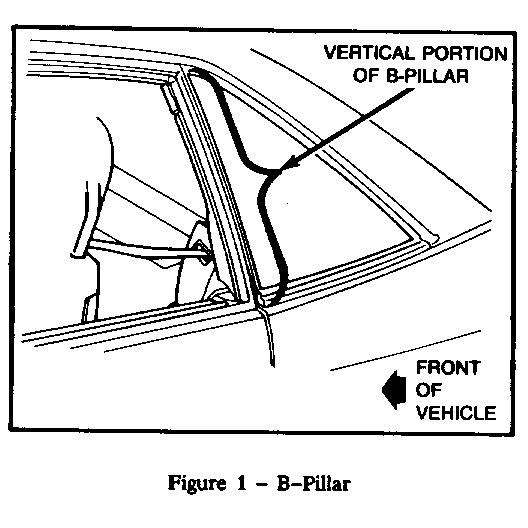
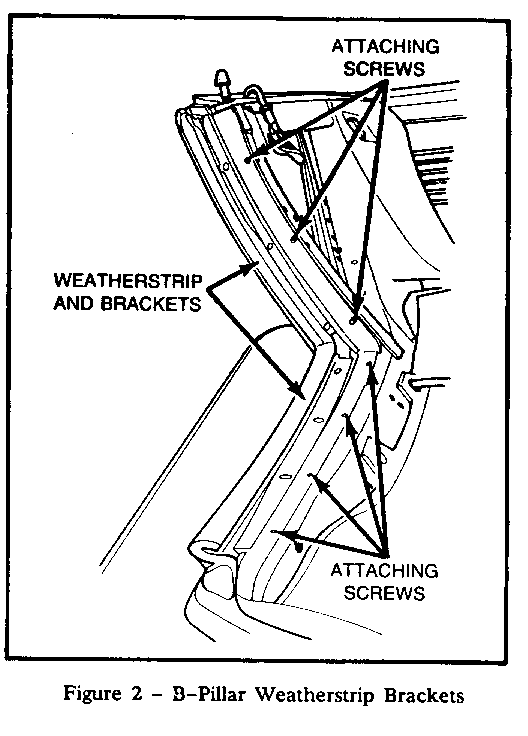
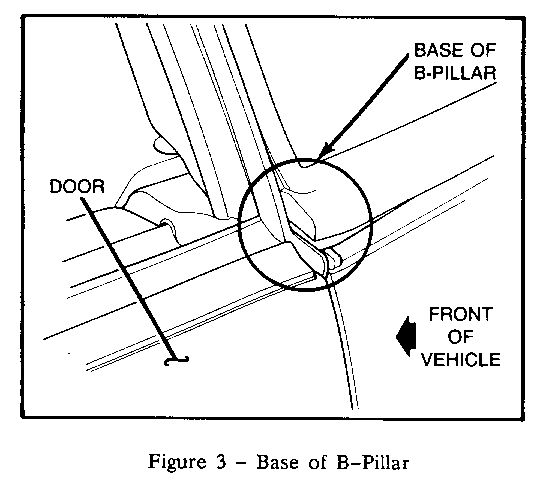
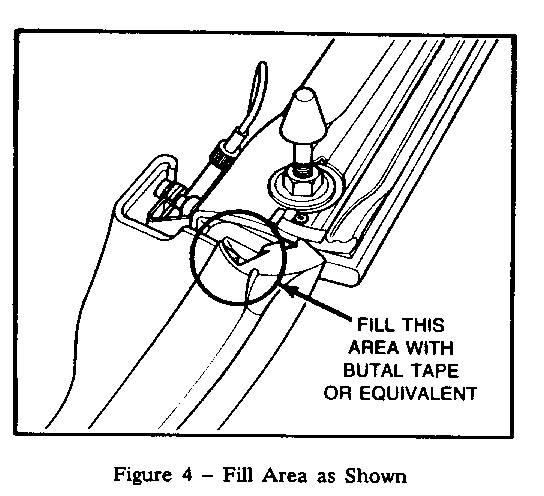
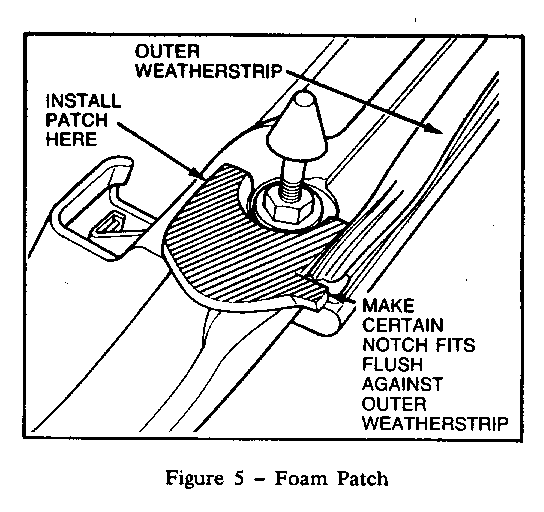
General Motors bulletins are intended for use by professional technicians, not a "do-it-yourselfer". They are written to inform those technicians of conditions that may occur on some vehicles, or to provide information that could assist in the proper service of a vehicle. Properly trained technicians have the equipment, tools, safety instructions and know-how to do a job properly and safely. If a condition is described, do not assume that the bulletin applies to your vehicle, or that your vehicle will have that condition. See a General Motors dealer servicing your brand of General Motors vehicle for information on whether your vehicle may benefit from the information.
